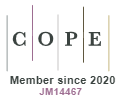Communication:
climate change and urban planning: scenarios and challenges
DOI:
https://doi.org/10.5585/2023.25704Keywords:
Climate Change, urban planningAbstract
According to the 6th Report (AR6) of the Intergovernmental Panel on Climate Change (IPCC), published in 2021, it is unequivocal that greenhouse gas emissions from human activities are the cause of global warming. If not drastically reduced in the coming years, extreme climate events will increase in intensity and frequency with each additional temperature increment. To keep global warming below the maximum limit of 2°C, it is estimated that countries worldwide must triple the emission reduction targets assumed in their Nationally Determined Contributions (NDCs) and quintuple efforts to achieve the 1.5°C goal agreed upon by the Paris Agreement.
In an increasingly urbanized world, adverse effects of climate change will be experienced by the majority of the population in cities. Extreme climate events, becoming more intense and frequent, will particularly affect vulnerable social groups, exacerbating urban socio-spatial inequalities. The IPCC emphasizes the importance of urban planning for climate change adaptation and mitigation. Cities consume two-thirds of the planet's energy and account for over seventy percent of greenhouse gas emissions, playing a crucial role in emission reduction and preparation for adverse climate change effects and disaster prevention.
In terms of mitigation, urban planning can contribute to reducing greenhouse gas emissions through measures such as urban densification, promoting more efficient land and resource use; support for public transportation and active mobility, reducing pollutant emissions and promoting health; a just energy transition, replacing fossil fuels with renewable energy sources with equity and accessibility for all; and the preservation of green areas contributing to environmental comfort and carbon sequestration.
Regarding adaptation, urban planning can prepare cities for climate impacts through measures such as reducing soil impermeability to decrease flood and flood risks; building resilient infrastructure such as dikes and early warning systems for disaster prevention; nature-based solutions to protect urban greenery and water bodies; and preserving beaches, dunes, mangroves, and estuaries to prevent coastal erosion and control the adverse effects of sea-level rise.
Urban planning for climate change adaptation and mitigation faces challenges, including a lack of financial resources and resistance from societal sectors. However, urban planning is undoubtedly an essential tool to address the climate emergency. Cities investing in urban planning for climate change adaptation and mitigation will be better prepared to face future challenges.
In this context, this special edition of the Journal of Environmental Management and Sustainability aims to foster debate on how territorial and urban planning strategies, techniques, and instruments can support the structuring and implementation of climate actions at the local level. This enables cities to enhance their adaptive capacity, build resilience, and accelerate decarbonization efforts by 2050.
In the eight articles published in this special edition, researchers, professionals, and public officials share their experiences and knowledge on how urban planning can contribute to climate change adaptation and mitigation in the country. The first presented study develops the concept of urban vulnerability and discusses urban climate adaptation measures to reduce hydrometeorological risks. The second selected article presents the classification of socio-environmental vulnerability (VSA) in the Municipality of Brusque (SC) to socio-environmental disasters, focusing specifically on mass movements.
The third published study systematically presents research results on climate change between 2005 and 2022 and the impact of sea-level rise on the urban areas of the northeast and east coast of Santa Catarina. The fourth selected article proposes possible adaptation measures to mitigate the physical and economic impacts of climate change on the city of Salvador, focusing on the tourism sector.
The fifth published article discusses the potential consequences of urban growth on rural territory in the context of climate change. The sixth study discusses how Environmental History can contribute to local climate analysis, focusing on the Itajaí Valley, southern Brazil.
The seventh selected article focuses on promoting active urban mobility as a strategy to reduce greenhouse gas emissions in cities, questioning whether living in a tree-surrounded house can encourage walking in the Brazilian context. The last published article proposes natural ventilation solutions to promote thermal comfort in residences.
Ultimately, it is expected that the articles published in this special edition contribute to the development of more effective public policies and urban planning practices to address the challenge of climate change in the country.
Downloads
Published
How to Cite
Issue
Section
License
Copyright (c) 2023 Autores

This work is licensed under a Creative Commons Attribution-NonCommercial-ShareAlike 4.0 International License.









